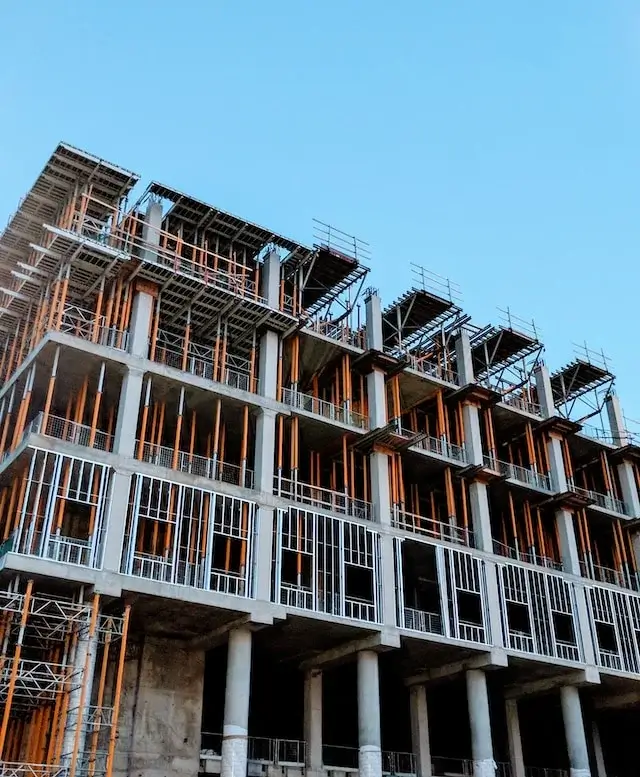Unlocking the Secrets to the Perfect Contractor Match
Selecting the right contractor is a pivotal decision in your construction journey. It’s not just about hiring a professional; it’s about finding a partner who will bring your vision to life. The right contractor ensures your project runs smoothly, stays within budget, and finishes on time, while the wrong choice can lead to endless headaches.
Key Qualities to Look for in a Contractor
When embarking on your search, consider these essential qualities:
-
Experience and Specialization: Look for a contractor with a solid track record in projects similar to yours. If you’re planning a residential remodel, a contractor who mainly works on commercial buildings might not be the best fit.
-
Reliability: Your contractor should be someone you can count on. Check their history for completing projects on time and within budget.
-
Communication Skills: Effective communication is critical. A good contractor will keep you informed, answer your questions promptly, and be available for discussions.
-
Reputation: Research their reputation in the industry. Online reviews, testimonials, and feedback from past clients can provide valuable insights.
Navigating the Credentials Maze: Licenses, Insurances, and Bonds
Ensuring your contractor is licensed, insured, and bonded protects you from various risks:
-
Licenses: A licensed contractor has met the industry and state standards for their profession. Verify their license status and check for any past violations.
-
Insurance: Liability and workers’ compensation insurance safeguard you from responsibility in case of accidents or damages during the project.
-
Bonds: A bonded contractor provides an extra layer of financial protection. If the contractor fails to complete the job or violates the contract, the bond can offer compensation.
The Power of Past Projects: Understanding the Importance of References and Portfolios

A contractor’s past work is a window into their skill and expertise:
-
Portfolio Review: Examine their previous projects to assess their quality and style. This can also give you new ideas for your own project.
-
Client References: Speaking with past clients can reveal insights into the contractor’s work ethic, reliability, and ability to manage challenges.
Comparing Quotes: A Balance of Cost and Quality
When it comes to quotes, it’s not just about the lowest bid:
-
Detailed Breakdown: A good quote should be transparent, providing a detailed breakdown of costs. This includes materials, labor, overhead, and profit margins.
-
Comparing Apples to Apples: Ensure you are comparing similar scopes of work among different contractors. Differences in materials, labor quality, and timelines can result in varying quotes.
-
Beyond the Price Tag: The cheapest quote isn’t always the best. Consider the value you’re getting for your money, including the quality of materials and workmanship.
Effective Communication: The Cornerstone of Your Contractor Relationship

The success of your project heavily depends on clear and continuous communication:
- Regular Updates: A competent contractor will keep you informed about the progress and any issues that arise. They should be accessible and willing to address your concerns.
- Decision-making Process: They should involve you in key decisions and seek your input, ensuring the project aligns with your expectations.
- Conflict Resolution: A good contractor doesn’t just communicate well when things are going smoothly; they’re also adept at handling disputes and finding solutions.
Navigating Contracts: Your Roadmap to a Clear Agreement
A well-drafted contract is your safety net:
- Comprehensive Details: Ensure the contract includes specifics like the scope of work, materials to be used, timelines, payment schedules, and warranty information.
- Changes and Contingencies: It should outline procedures for handling changes in the project and contingencies for unforeseen issues.
- Legal Clarity: Consider having a legal expert review the contract before signing. This can help clarify any complex clauses and ensure your interests are protected.
Avoiding Common Pitfalls When Hiring a Contractor
Awareness of potential pitfalls can save you from trouble:
- Lowest Bid Temptation: While tempting, the lowest bid may not always offer the best value. Be wary of significantly lower quotes as they might indicate hidden costs or subpar work.
- Skipping Research: Thoroughly vetting a contractor’s background and previous work is non-negotiable. Don’t skip this step in a rush to start.
- Ignoring Gut Feelings: If something feels off during your interactions, it’s worth reconsidering. Trust and comfort with your contractor are crucial.
Empowered Decision Making: Taking the Leap with Confidence
Equipped with the right knowledge, you can confidently choose a contractor:
- Balanced Decision: Weigh all factors, from cost to communication style. It’s about finding the right fit for your specific needs and vision.
- Trusting Your Choice: Once you’ve done your due diligence, trust in your decision. A good contractor will partner with you to bring your project to successful completion.




